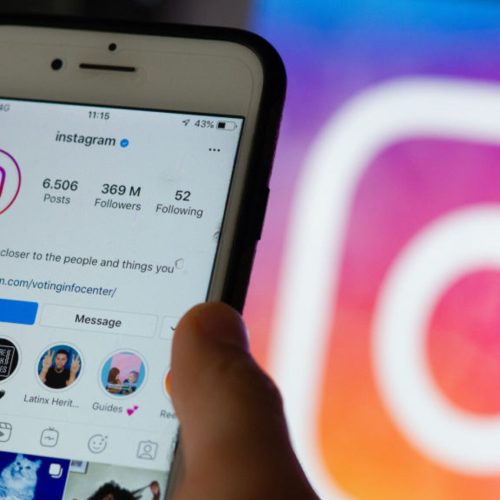Whether it’s sliding into your future bae’s DMs or getting your daily dose of the Kardashians, we’ve found plenty of uses for Instagram.
And for those looking for an intellectual fix, there’s a special corner of the social network that’s developed over the last few years, delivering well thought-out content. Instagram historians.
With upwards of 163,000 followers, @BrownHistory has built a cult following by tracing the untold stories of South Asian communities across the globe, with rarely-seen photos and long-form captions. One of their latest posts tells the story of Sikhs in Shanghai, dating back to 1884 when the Shanghai municipal police sought cheap labour from Sikh men to patrol intersections.
https://www.instagram.com/p/Byoo4V-HriR/?utm_source=ig_embed
Similarly, the region’s very own Sofiane Si Marabet, better known as @TheConfusedArab uses the platform to trail Arab history around the world, paving a new lane for himself as a 21st century crossbreed of influencer-cum-historian that’s only made possible through the social network. But rather than feeding his followers knowledge through the permanent posts on his feed, it’s his Instagram stories that are most intriguing.
https://www.instagram.com/p/BuR6gn-nwB8/?utm_source=ig_embed
Typically delivered in both Arabic and English, Si Marabet delves deep into all aspects of Arab culture, from the tradition of Mesahratis (men playing drums in the streets during Ramadan to wake people up for Suhoor) to the orientalist perceptions of belly dancing.
@Zamaaan follows a similar formula to Brown History, with posts gathered from public archieves and user-submitted posts on everyone from the great Um Kulthoum to Mahmoud Darwish.
https://www.instagram.com/p/BRNaYDnj3x1/?utm_source=ig_embed
It’s no coincidence that these accounts are gaining traction. Recent years have seen the region vehemently try to feed its thirst for the forgotten pockets of history and culture not taught in schools. Social platforms, from Instagram to Twitter, have turned into hotbeds of debate concerning social and political issues, with everyone sharing both facts and opinions on the platforms, often without citation.
With the current political climate and our thirst for representation (combined with the wealth of information we all have access to thanks to the internet) it’s the perfect recipe for the rise of the Instagram historian.
Their profiles have turned into spaces where people find a sense of representation they’ve longed for. The likes of Brown History, The Confused Arab and Zamaaan have taken on positions as figureheads, even if not by their own admittance. In a way, they’re seen as truth tellers—but their credibility remains in question.
I recently came across a Twitter thread on Wikipedia with its reliability as the point of contention. It’s true that most of the information on the site is in fact factually accurate, and there is a growing tendency to accept the platform as a reliable source. Just search the keywords “Wikipedia” and ‘reliable” into your Twitter search bar, and you’ll see.
But in an interview with Bloomberg, Wikipedia’s founder Jimmy Wales agreed that while it can be reliable, it’s not to be cited. “I don’t think people should cite it. People shouldn’t be citing encyclopaedias in the first place. Wikipedia and other encyclopaedias should give good, solid background information to inform your studies for a deeper level.”
In any case, Wikipedia comes with a slew of community-based editors continuously fact-checking. Most entries come with a long list of references. Instagram does not—and it was never intended to carry that function. But much like Wikipedia, Instagram’s corner of history can also be a stepping stone to informing ourselves on subjects that we otherwise wouldn’t have come across. I think that we can all agree, that in the age of fake news and deepfake videos (which should be freaking us all out, and if not, here’s a Wikipedia article that’ll do the trick) we owe ourselves the responsibility to look beyond beautifully curated feeds.









